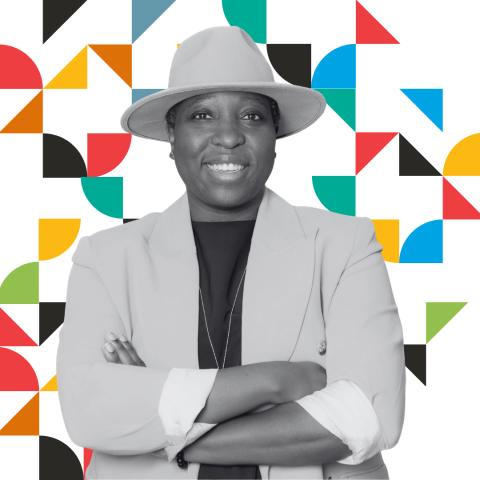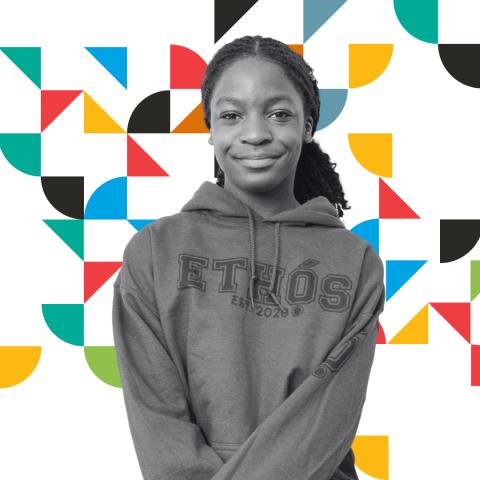
Black History Month 2024: Fostering the Growth and Future of Black Youth Through S.T.E.A.M
February is Black History Month, which began in the United States as a way of honouring and celebrating Black people and important events in the history of the African diaspora. Over the years, it has evolved into an international celebration, serving as a time to recognize and celebrate the significant contributions Black people and their communities have had on our society and the rich cultural impacts Black culture has had around the world. It's also a time to reflect on the disproportionate injustices the Black community has endured throughout history and continues to face due to systemic racism, discrimination and social inequities.
Each year, a theme is identified for Black History Month, with events and information fashioned around it. The 2024 theme for Black History Month is Black Excellence: A Heritage to Celebrate; a Future to Build. In recognition of this theme, YWCA Metro Vancouver is hosting an internal event, welcoming a Black speaker from the community, who will be sharing their rich family heritage. To celebrate the latter half of this theme, we wanted to hear from those doing work to foster the growth and future of Black youth in our local communities. We spoke to Anthonia Ogundele (she/her/hers) Founder & Executive Director of Ethós Lab, an after-school innovation academy for youth grades 5 to 12 to explore and grow through S.T.E.A.M (science, technology, engineering, arts and mathematics.) We also had the opportunity to speak with 17-year-old Marylou Djida, who attends Ethós Lab. The interview is split, with the first half speaking to Anthonia and the second half speaking to Marylou.

Q: Could you tell me about your work at Ethós Lab and why you started it?
Anthonia: I guess I feel it's hard as an entrepreneur to think about when something starts. It's always just been an idea in my head, but [it] really was catalyzed as I became a mother. I saw the inequity in access to science, technology, engineering and math programming to all young people, combined with a creative community and safe space where you can just be, and allow your imaginations to kind of soar.
Q: How does your work support youth and Black youth in S.T.E.A.M?
Anthonia: At its core [our work] is about inclusion. I know there are many different spaces where I might find myself, and even memories of myself being a Black youth, where I didn't necessarily feel that I had those spaces to be reflected, be respected. To feel safe. To take courageous steps to do what I like and connect to different resources. I know that's an experience for Black youth in general.
"When you design a space targeting Black youth, you make a more inclusive space for all. We have kids from many different backgrounds and all walks of life, that come to Ethós and say, “This is a great community. I feel safe here. I want to come back.” So, that's what we've been able to offer Black youth, making sure they are feeling seen, but also for all youth.
For non-Black youth, you get to see a Black person in leadership, a Black person teaching something, a Black scientist to Black designers, where the regular non-Black student may go through their whole Vancouver high school career and never interact with a Black person or have a Black teacher. So, it creates that diverse environment led by the Black community for that to be able to happen in a way that then informs them on cultural competency and creates the safe space for Black youth to have a peer that sees them as they are, versus just the interactions that they might see in the media."
Q: In your experience and observations, what are the greatest barriers to inclusion in this field for Black and racialized youth?
Anthonia: The biggest barriers, I would say, are the perception and expectations of teachers, leaders and peers. When a Black youth expresses interest in coding or something more academic, peers might be like (as I experienced myself), “Why are you doing that? That’s not cool.” Or, for example, teachers are surprised when you get a great grade. When these areas of interest become this surprise and exceptionality, that's a big barrier for Black youth in being able to continue to foster that curiosity that's already there. Different biases from peers, teachers, adults and the media begin to stifle the curiosity and expectation that they can challenge themselves and do really great things.
Q: What changes do you hope to see in S.T.E.A.M to better support and recognize Black innovators?
Anthonia: What I would like to see is greater diversity in this space and really address the patriarchal system and anti-Black racist commentary that comes out of the sector at various points in time, in particular tech spaces.
I think it's a cultural problem. We know that girls in particular are interested in S.T.E.A.M. We know that they're matriculating and taking courses in engineering and in the sciences and they leave in their second year. Or they graduate, enter the workforce and leave after the first or second year.
There's something there around retention and creating a safe space for them to be able to be their greatest self. We really need to address the culture that we're fostering for Black youth in this space.
Q: Please tell me your name and a bit about yourself.

Marylou: I am 17 years old. I have Cameroon origins, but I was born and grew up in Italy. I came [to Canada] in 2016, I am currently attending a Francophone high school and I am in grade 12. I am
really interested in languages, I'm a gourmet cook and I love sports, especially track and field.
Q: Have you always been interested in S.T.E.A.M?
Marylou: I've always been very curious. I remember just browsing our mini library in our living room. I was reading my mom’s anatomy and physiology books. I feel like that's part of where my interest in biological sciences came from. So yes, I think I've always been interested in this too.
Q: What subjects do you enjoy doing the most?
Marylou: Definitely biology. I will just stay up and study because I truly find it interesting. You know, chemistry and physics are kind of challenging, but I mean, once you understand it, it's really easy. But yeah, biology, is definitely my favorite subject.
Q: How did you hear about the Ethós Lab and why did you decide to join?
Marylou: My mom signed me up March in back in 2019. It was for the Hackathon where we had to think of a fourth technological dimension. I remember having a lot of fun. I felt like it was a very dynamic atmosphere. As soon as the event ended, I was like “Mom, what's that?” And I remember for the next weeks, months, years, even, I was just so glad to come to the Lab because the people are so welcoming, so supportive and just we have so many dynamic discussions.
Q: Would you like to continue in S.T.E.A.M for university or further along?
Marylou: Yes, of course. I would love to go into S.T.E.A.M. Right now, I'm looking at more of an interdisciplinary approach. I would love to work in public health, perhaps at a governmental level or private companies. Who knows?
I recently worked with The City of Vancouver as a Youth Community Developer where we worked on a youth anti-violence strategy that has recently been approved by City council. During my time there, I was introduced to the work of policymaking and ethics and truly working with citizens.
Q: What have you learned from being part of Ethós Lab?
Marylou: I have learned what it means to be a leader. I've learned how to work in groups and teach. In all our events, we've had to team up and create something for a common goal. Innovation drove us to learn how to communicate, and it taught me the importance of a community's soul.
Q: Is there a Black innovator who inspires you or has inspired your journey?
Marylou: I'm going to stay local and say Anthonia. She’s a number one hero because of what she has created. So many people have ideas, but she has made hers concrete.
I never thought I would have needed [Ethós Lab] until I had the opportunity. Honestly, she inspires me a lot because she has done so much for the community and achieved so many things for us and it's truly incredible.
For more information on Ethós Lab, or to sign up for their March break programming, check out their website.

